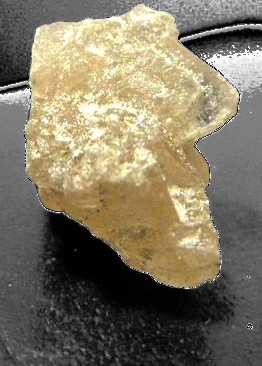Experts push for party drug to cross over
 A Melbourne pharmacist and a leading doctor have called for serious conversation about legalising and regulating currently illicit narcotics.
A Melbourne pharmacist and a leading doctor have called for serious conversation about legalising and regulating currently illicit narcotics.
Melbourne pharmacist Joshua Donelly and leading doctor Professor David Penington say Australians should be able to buy the drug ecstasy in a pure form from their local pharmacy, arguing that it would curtail the harm caused by dodgy blackmarket pills.
Thousands of people use the illegal drug MDMA - also known as ecstasy, Molly, pingers, X, E, beans or caps - every week, seeking its ability to cause feelings of happiness, empathy, intimacy, and reduced anxiety.
But the experts say this requires swallowing sometimes contaminated versions that carry a profound risk of harm, as they are often manufactured illegally with no quality control.
From a harm-reduction standpoint, the pair say the Australian government should legalise the drug, and regulate its production and sale through pharmacies.
That way, they argue, users can access a safer, pure dose of the drug along with education and discussion about the risks.
This would also allow pharmacists to intervene for people at high risk of harm, and encourage them to avoid the drug.
The idea is fleshed-out in an article in the Journal of Law and Medicine.
Mr Donelly says that although no drug is completely risk-free, MDMA actually causes “negligible” harm to users and people around them, compared to other drugs.
He points to bodies like Britain's Independent Scientific Committee on Drugs, which ranked MDMA 17th – a long way behind tobacco at 6th and alcohol at 1st – on a list of 20 most popular drugs ranked by the harm they cause.
Mr Donelly also says the scientific evidence suggesting MDMA caused considerable, serious or long-lasting adverse effects was unreliable.
He said most research focused on consumers of illegal ecstasy pills, not pure MDMA, and were usually based on self-reporting, andt did not take into account factors such as use of multiple drugs.
The pharmacist said there was no convincing evidence that MDMA caused dependence or made users violent.
He argued that MDMA was more likely to provide “social benefits for many people and a positive effect on their quality of life”.
Professor Penington, who works largely in combating HIV and AIDS in Australia, said prohibition only increased the damage of illicit drugs.
“Australians are one of the highest consumers of MDMA in the world, yet we resolutely resist exploring the fact that most of the uncommon ill consequences of its use arise from impurities in illicitly manufactured drug and the 'illicit', uncontrolled circumstances of its use,” he said.
Matthew Frei, head of clinical services at Turning Point Alcohol and Drug Centre, told Fairfax Media reporters that “all drugs are associated with some level of risk”, but that it was “rare that you see someone whose primary drug of addiction is MDMA”.
President of the Pharmaceutical Society of Australia Joe Demarte told reporters that much more research was needed to show the drug was safe for regulated use.
“Someone has to produce evidence that it's safe … You'd have to run proper clinical trials,” he said.
The Victorian Government reportedly has no plans to legalise MDMA.








 Print
Print